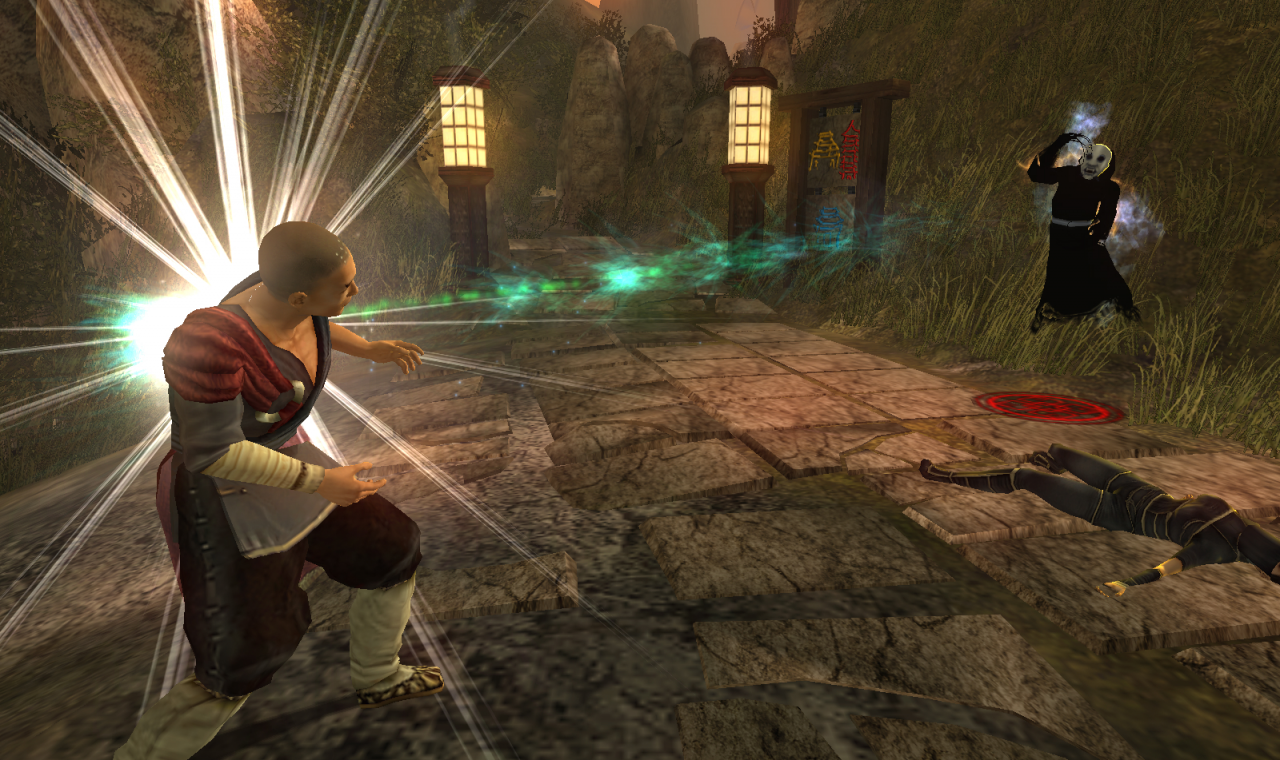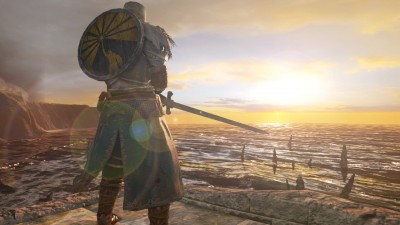Disorder is a plague; one that bites into the world and leaves behind with it only shreds, madness, and discord.
Inevitably, that level of disorder will pick the world apart, leaving behind only a hollow shell of what it once was. That emptiness can only bring turmoil, and peace will find itself more scarce with each passing day. The longer the disorder persists, the more troubled the world inevitably becomes. Bandits thrive, villages and farms break or burn, and empires have an equal chance of crumbling as they do maintaining themselves. Tragic as it is, the deaths of many lives is bound to be the wake of such a world’s passing.
This is the central theme of Bioware’s Jade Empire, an action-RPG following the actions of a martial artist traveling the length of the empire in order to save his or her master’s life. It’s a rather stark world, one where troubled spirits attack travelers, merchants and wanderers can scarcely travel the streets without fearing attack, and all manner of bandits and thugs thrive in the growing chaos plagues the land.
However troubled the narrative and its characters seem to be, Jade Empire never really feels terribly harsh. The scenery is somewhat lifeless, the animations are stiff, and as a result it all feels just a little bit sterile. The dialog and accompanying voice work is well-spoken, but never quite have the emotive, insistent punch it needs to fill out the dramatic moments. The highlights, all seem to get lost in the sea of potential dialog trees, or energetic outbursts from the more single-dimensional and support characters in the party.
As a result, the narrative in Jade Empire feels a little clunky. Character motivations are more remarked upon than they’re actually felt, and rather than being reinforced by the narrative mechanics, this makes even the best characters’ motivations feel vapid at times. However, where narrative lets the game down, the gameplay mechanics make up for it. The various combat styles and methods for attack make combat open to exploration. The number of martial, weapon, and support styles give the player numerous ways to take on opponents and adapt to challenges as they come. Although the game feels bit heavier and more lethargic in action compared to more modern titles, once combat actually begins, the varying styles make the game feel more open, playful and exploratory in combat.
This is bolstered by the varying degree of opponents the player is likely to face. Between ghosts, spirits, demons, celestial creatures, guards, thugs, homunculi, and animals, the game requires that players vary their combat styles to suit the strengths and weaknesses of their opponents, leaving even a somewhat heavy combat system to become the highlight of the game. Although some combat can feel forced, especially given certain opponents will be outright immune to one or more martial styles, there is still balance there. Unfortunately, this immunity also means that players who haven’t leveled a certain way can occasionally find themselves facing down long odds that can turn a particular battle into a chore rather than a joy. More often than not, this is not the case and the majority of the game is still rewarding for players who like explore the world, and take the opportunity to do side quests and optional missions.
The biggest tragedy of Jade Empire comes from how inconsistent the entire process feels at the far end of it. Although the narrative has a very appreciable consistency and certainty to it, the gravity of it all is let down by the less than stellar delivery. The ghosts and spirits are all very verbally troubled by the circumstances, but the environments and general tenors all feel completely static. Completing a quest doesn’t change much of anything in the open world and so fighting feels like a shoehorned game mechanic rather than being part of the on-going narrative. NPCs will occasionally remark upon some plot point or another, but they’ll fail in making them felt as well as spoken of. Combat styles will arrive mostly via purchase rather than being taught by masters, and stat boosts and upgrades will happen primarily in flavor text rather than seeming to change anything other than the occasional physical appearance. Villainy and positivity appear more as stats on a sliding scale than they result in anything terribly significant. All of this leave the game lacking some of the impact it could have, and leaves you wondering if it quite lived up to its potential.
Because of all this, and Bioware’s insistence on using the same redundant morality system of blanket-good and blanket-evil like that they’ve put in everything from their previous title, Star Wars: Knights of the Old Republic, to the Mass Effect franchise, the entire assemblage combines in a way that feels somewhat rote, by the numbers. Jade Empire isn’t a bad game, and many could argue it’s far from it, but nor is it really an adventurous one. The maps feel tight, the events feel quest-y and staunchly mechanical, and the combat dynamics are appreciable and even at time great, but still feel like they were needed rather than that they emerged naturally. Jade Empire is a good game, but no more than that. It doesn’t feel alive, vibrant, or teeming with the soul that the great games have. Jade Empire is a polished mechanic around which a game’s been built, but outside of the trappings of a game, doesn’t really leave much of an impression.
At the end of the day, it’s hard not to recommend Jade Empire. For its flaws, it still manages to feel really interesting in how the multiple styles and game dynamics can interplay. Combat is, at its peak, festive, messy and genuinely fun to explore. At its worst, it’s somewhat burdened by how clinical it all feels. If the events of the game had any interplay whatsoever, or the world did anything other than existing in a semi-permanent state, it would be so much greater; it’s just a genuine shame to see such potential go to waste.




